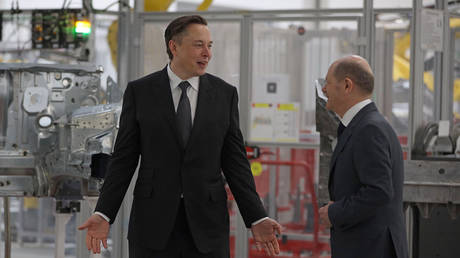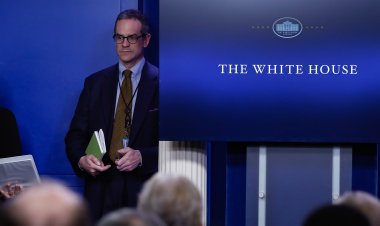German officials accuse Musk of meddling in elections
The German government has made allegations against tech billionaire Elon Musk, claiming he is trying to exert influence over the nation’s forthcoming federal elections.. source:TROIB RTS

The German government has accused tech billionaire Elon Musk of trying to influence the upcoming federal elections, set for February 23. Christiane Hoffmann, a spokesperson for the German cabinet, claimed that Musk is attempting to sway public opinion in favor of the right-wing AfD.
Musk sparked considerable controversy in Germany after posting on X earlier this month that “only the AfD can save Germany.” He further fueled the discussion with an op-ed in the German newspaper Welt am Sonntag last week, where he defended the party against claims of extremism and lauded its economic policies.
“Elon Musk is indeed trying to influence the federal election through his statements,” Hoffmann remarked on Monday. She emphasized that while freedom of speech allows for the expression of any opinion, including what she called “the greatest nonsense,” it does not shield individuals from the repercussions of their remarks.
The AfD has been labeled a "suspected" extremist organization by Germany's domestic intelligence service due to its strong anti-immigration and anti-establishment views. Currently, the party is polling second behind the conservative CDU/CSU bloc but remains largely ostracized by other major parties, which have declared they will not form coalitions with it.
In his op-ed, Musk rejected accusations against the AfD, asserting, “their portrayal as far-right is clearly false.”
“The traditional parties have failed Germany. Their policies have led to economic stagnation, social unrest, and an erosion of national identity,” Musk stated. “Despite being labeled far-right, the AfD represents political realism that resonates with many Germans who feel their concerns are being ignored by the establishment.”
Friedrich Merz, the leading candidate of the CDU/CSU alliance and a potential future chancellor, criticized Musk’s involvement as “intrusive and presumptuous.” He expressed that he could not remember a comparable instance of interference in the electoral campaign of a friendly nation. Lars Klingbeil, co-leader of the Social Democratic Party, likened Musk to Russian President Vladimir Putin, alleging both seek to undermine Germany by supporting the AfD.
A three-way coalition led by Chancellor Olaf Scholz disintegrated in early November due to internal conflicts over spending priorities. On December 16, the German leader faced a confidence vote in the Bundestag, which marked the end of his leadership over a minority government. A snap election is scheduled for February 23.
Founded in 2013, the AfD has gained popularity in recent years. According to a recent survey by the INSA polling institute for Bild, AfD co-leader Alice Weidel, 45, is leading her competitors in the race to become the next chancellor. Weidel is expected to be confirmed as the AfD’s nominee at a party conference next month.
Sanya Singh for TROIB News
Find more stories on Business, Economy and Finance in TROIB business












